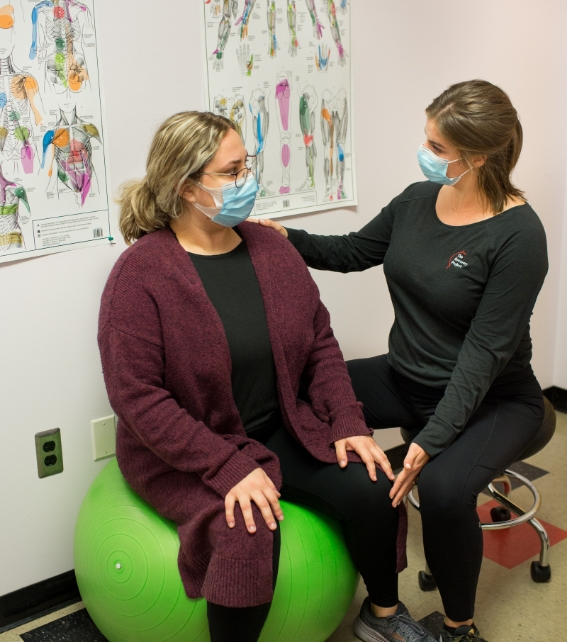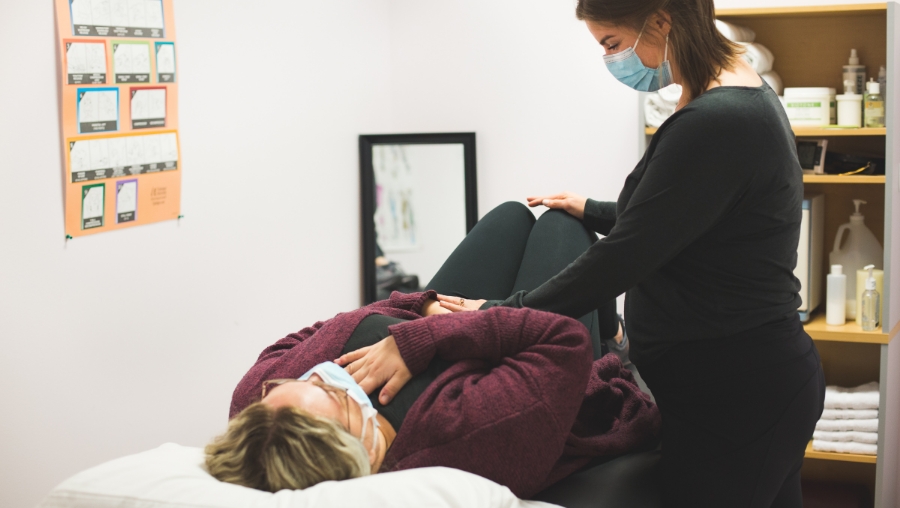Pelvic Health Rehabilitation
The Recovery Project’s pelvic health rehabilitation program includes a non-surgical approach to pelvic dysfunctions that contribute to bowel, bladder, sexual health and pain, affecting overall quality of life.
Common Conditions We Treat:
- Incontinence
- Pelvic pain
- Prolapse
- Constipation
- Sexual dysfunction
- Colorectal conditions
- Pelvic floor muscle dysfunction
- Pregnancy & postpartum conditions

The Scope of Practice for a Pelvic Health Therapist:
- Evaluation of pelvic floor musculature
- Intravaginal manual techniques: assessment of tone, sensation, symmetry, volume, trigger points, pain reproduction
- Assessment and treatments to address vaginal stenosis
- Assessment and treatment for side effects due to cancer and treatment, including but not limited to gynecological and prostate cancers
- Scar tissue mobilization
- Exercise prescription to strengthen or lengthen the pelvic floor
- Behavioral techniques including bladder retraining, treating constipation, weight reduction, fluid management, medication review

Our therapists are trained in treatment of pelvic floor dysfunction as well as oncology of the pelvis.
Our approach is aimed towards restoring the greatest possible function for our clients after undergoing surgery, radiation and chemotherapy to treat cancers of the pelvis. These techniques include scar tissue mobilization, lymphedema management, pelvic floor strengthening, and education on how to prepare and recover from surgery procedures of the abdomen and pelvis.

Indications for Pelvic Oncology Rehabilitation:
- Abdominal or pelvic surgery
- Changes in bowel or bladder function: frequency, incontinence, leaking of gas, liquid or constipation
- Scar tissue management
- Pain with intercourse, voiding or sitting
- Decreased endurance or functional mobility (rolling in bed, standing up straight)
- Lymphedema
- Reduced core stability and strength